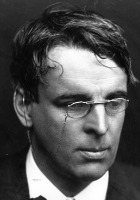|
“So let her think opinions are accursed”: What happens when women treat opinions as if they were their children or their lovers.
A recurrent theme in the writings of the Anglo-Irish poet William Butler Yeats (1865-1939) is the spiritual damage caused—particularly to women—by political activism, namely that of the Irish nationalist movement. Yeats himself sought a revival of the Irish nation by means of a renaissance of Irish myth, drama, and poetry. At the same time, he consistently criticized the political movement for Irish nationalism, which he thought involved hate and demagoguery rather than any positive values. He felt that involvement with this movement had ruined highly talented friends of his, such as Maud Gonne and the sisters Eva and Constance Gore-Booth, by turning them into hard-bitten fanatics and destroying their finer qualities, even their very humanity. Many of his best poems, such as “A Prayer for My Daughter,” “Easter 1916,” and “On a Political Prisoner,” touch on this theme.
 W.B. Yeats Yeats wrote in a diary in 1910:
Women because the main event of their lives has been a giving of themselves give themselves to an opinion as if it were a stone doll … women should have their play with dolls finished in childhood for, if they play with ideas again, it is with hatred and malice.Yeats expanded on this thought in “The Death of Synge”:
F____ is learning Gaelic. I would sooner see her in the Gaelic movement than in any Irish movement I can think of. I fear some new absorption in political opinion. Women, because the main event of their lives has been a giving themselves and giving birth, give all to an opinion as if it were some terrible stone doll … to women opinions become as their children or their sweethearts, and the greater their emotional capacity the more do they forget all other things. They grow cruel, as if in defence of lover or child, and all this is done for ‘something other than human life’. At last the opinion is so much identified with their nature that it seems a part of their flesh becomes stone and passes out of life…. Women should have their play with dolls finished in childish happiness, for if they play with them again it is amid hatred and malice. (Autobiographies, 504)Yeats’s original insight into the dehumanizing and defeminizing effects on women of political fanaticism, “At last the opinion is so much identified with their nature that it seems a part of their flesh becomes stone and passes out of life,” relates to the following lines from his great poem “Easter 1916,” which is about the men and women who gave their all to Irish nationalism in the quixotic and doomed Easter Rising. He is saying that through their total devotion to a cause, they deformed their nature, turned their heart into a stone. But at the same time he admits, going against his own hostile view of political activism (he always saw issues from both sides), that through the heroic sacrifice of their lives they raised Ireland to a higher level, even bringing Ireland into contact with its mythical self, a consummation Yeats had hoped to achieve through literature. In these lines he deliberately allows his own turbulent ambivalence about the meaning of the Easter Rising to be felt. Yet his uncertainties do not prevent him from coming to a definite conclusion about its ultimate meaning.
Hearts with one purpose alone
Yeats, his times, his friends and what happened to Ireland after it achieved independence from England is a story with many parallels to our current American situation. Essentially the politicization of Irish culture ended up destroying the country itself, just as leftist political correctness has destroyed every institution here in America. Though none of our leftists have the intelligence or culture of the original Irish revolutionaries they both ended up stripping their culture of everything but power and ego. After independence and after Ireland had been brought completely in line with political definitions it became what it was without its myths, a rainy, isolated, and impoverished island where nothing happens. Subsequent generations of writers all fled the country, Joyce and then Beckett to Paris, where they recreated a mythic Ireland on the written page, more vibrant than what was now allowed to exist back home . Those who didn’t escape and who tried to keep their creative lives intact fought bleak losing struggles. Men like Flann O’Brien who killed off the inner nagging of his immense talent by saturating himself in alcohol, or men like Patrick Kavanaugh whose few poems are painful testimony to lives lived out in desperation and loneliness in a country that no longer had use for them.LA replies:
That’s very interesting the way you connect Irish Nationalist politics with post-Sixties American politics.LA continues:
I should add that once the Irish Free State had come into existence, though Yeats served briefly as a senator, he concluded that its politics were low and debasing and he took very little interest in it. His interest was in the hoped-for, heroic Ireland envisioned in his “last will and testament” poem, “Under Ben Bulben.” Posted by Lawrence Auster at December 12, 2012 02:24 PM | Send Email entry |